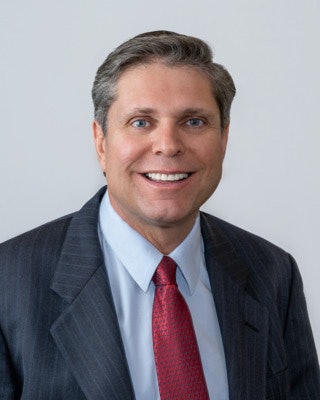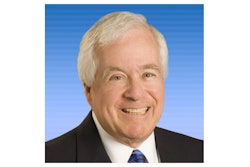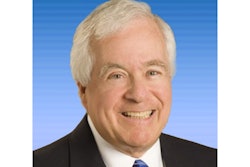
Divorce is a complex process and for dental practice owners, it can become even more challenging when it comes to the division of assets, particularly the valuation of the practice. One of the key elements in this process is distinguishing between personal goodwill and enterprise goodwill, as these can significantly impact the financial outcome of the divorce.
 Michael Lehner.
Michael Lehner.
Using a financial expert is essential to ensure an accurate and fair valuation of the dental practice, which can ultimately affect the division of assets. There are 40 states that are considered equitable distribution states, where personal goodwill is not a marital asset and enterprise goodwill is considered a marital asset.
Goodwill: What it means for dental practice owners
Goodwill refers to the intangible value of a dental practice, including its reputation, patient base, and the potential for future earnings. When a dental practice owner is involved in a divorce, the value of goodwill often becomes a point of contention. It's crucial to understand the two main types of goodwill:
- Personal goodwill: This is the value tied directly to the individual dentist. It is based on their personal skills, reputation, and patient relationships.
- Enterprise goodwill: This represents the value of the practice as a business entity, independent of the owner's personal involvement.
The need for a financial expert
Valuing a dental practice requires a deep understanding of both personal and enterprise goodwill, as well as the nuances of the dental industry. Financial experts, particularly those experienced in practice valuation and divorce, play a critical role in assessing the true value of the practice. Here's why engaging a financial expert is essential:
- Accurate goodwill distinction: One of the key tasks for a financial expert is determining how much of the practice's goodwill is personal versus enterprise in nature. For example:
- If incoming referrals are directed first to the owner before being passed to associates, it signals personal goodwill.
- If the practice's branding prominently features the owner's name, this also suggests personal goodwill. However, if the practice operates under a more generalized name, it indicates enterprise goodwill.
- Valuation methodology: Financial experts use specialized methodologies to value dental practices taking into account revenue streams, patient loyalty, practice location, staff, and equipment. These experts are skilled in analyzing financial statements, tax returns, and practice management software data to ensure that all relevant financial information is captured. Additionally, they can identify whether the practice's value is primarily due to the owner's efforts or whether the practice has value as an independent entity, with or without the owner's direct involvement.
- Objective assessment in divorce proceedings: During a divorce, emotions often run high, and it can be difficult for either party to assess the practice's value impartially. A financial expert serves as an objective third party who can provide a fair and unbiased evaluation of the practice's worth. This expert testimony can be especially important in court, as it provides a clear, data-driven analysis of the practice's financial health and future earning potential.
- Financial planning and tax implications: Beyond valuation, a financial expert can assist in assessing the broader financial implications of dividing the dental practice. They can help evaluate the potential tax consequences of the divorce, suggest strategies for asset division, and guide how to structure the settlement to minimize financial strain on both parties. For dental practice owners, this may include considerations like buy-out options or restructuring the practice to protect its ongoing operations.
- Referral systems: If the practice relies heavily on the owner’s personal referrals, it’s an indicator of personal goodwill. Conversely, if there's a more formal referral system, this points to enterprise goodwill.
- Branding and name recognition: The use of the owner's name in the practice title or phone greetings can signal personal goodwill. A financial expert will assess how deeply the practice's success is tied to the owner's identity.
- Patient loyalty and retention: Is the practice dependent on the owner's personal relationships with patients, or do other associates contribute significantly to patient retention and growth? A financial expert will analyze patient records and practice data to determine this.
- Practice longevity and staff: A practice with a long-established team of associates and administrative staff that can run independently of the owner is more likely to have significant enterprise goodwill. A financial expert will look at the stability of the practice's operations.
A financial expert can assess these and other factors to determine the extent to which the practice relies on the owner personally versus the business entity itself. Some of the benefits of using a financial expert during divorce proceedings include the following:
Key factors a financial expert will assess
 Bruce Bryen.
Bruce Bryen.
Financial experts look at several factors to determine the goodwill balance and the overall value of the practice. These include the following:
The impact of goodwill on settlement negotiations
The distinction between personal and enterprise goodwill is critical because it directly affects how the dental practice is treated during divorce settlement negotiations. Personal goodwill is typically considered nontransferable, meaning that it is tied to the individual owner and is not considered a divisible asset in many jurisdictions.
As such, this portion of the practice's value may be excluded from the marital estate. However, enterprise goodwill, which reflects the value of the practice independent of the owner's direct involvement, can be subject to division. By engaging a financial expert early in the divorce process, dental practice owners can ensure a clear delineation between the two types of goodwill, which helps in setting realistic expectations for both parties during negotiations.
The role of expert testimony in court
In contested divorce cases, especially when the valuation of a dental practice becomes a point of dispute, financial experts often serve as key witnesses in court. Their testimony provides an objective, detailed analysis that judges rely on to understand the complexities of goodwill valuation.
The financial expert will typically present a comprehensive report that breaks down the practice's financial performance, outlines the methods used for valuation, and clarifies the balance between personal and enterprise goodwill. This testimony not only supports the dental practice owner's position but also provides transparency and clarity in what can be a highly technical and financially intricate process.
Preparing for the future of the dental practice
Beyond divorce proceedings, having a financial expert involved in the valuation process can benefit dental practice owners in planning for the future. Understanding the balance between personal and enterprise goodwill offers insights into how the practice might be restructured or sold down the line. For instance, if personal goodwill is dominant, the practice might have a lower value in a sale without the owner's continued involvement, signaling a need for succession planning.
On the other hand, a practice with strong enterprise goodwill can often attract buyers more easily. By clearly distinguishing these factors during a divorce, practice owners can better position themselves for postdivorce financial stability and long-term success.
Conclusion
For dental practice owners going through a divorce, the valuation of the practice -- especially the division between personal and enterprise goodwill -- can have a substantial impact on the financial settlement. Using a financial expert experienced in dental practice valuation is critical for ensuring that the practice is valued accurately and fairly. By working with a financial expert, practice owners can better navigate the complexities of asset division and protect their practice's long-term viability. With expert guidance, the divorce process can be more predictable, transparent, and ultimately lead to a more equitable outcome for both parties.
Michael Lehner is the director of forensic, litigation, and valuation services at Baratz & Associates PA. A seasoned expert with 30+ years of experience, he specializes in business valuations for various purposes, including shareholder disputes, matrimonial proceedings, acquisitions and sales of businesses, gift and estate planning, succession planning, and commercial litigation. He can be reached at [email protected].
Bruce Bryen is a certified public accountant with over 45 years of experience. He specializes in providing litigation support services to dentists, with valuation and expert witness testimony in matrimonial and partnership dispute cases. Bryen assists dentists with financial decisions about their practice, practice sales, evaluating whether to join a dental service organization, practice evaluation during divorce proceedings, and questions about the future or financial health of dental practices. He can be reached at [email protected].
The comments and observations expressed herein do not necessarily reflect the opinions of DrBicuspid.com, nor should they be construed as an endorsement or admonishment of any particular idea, vendor, or organization.



















